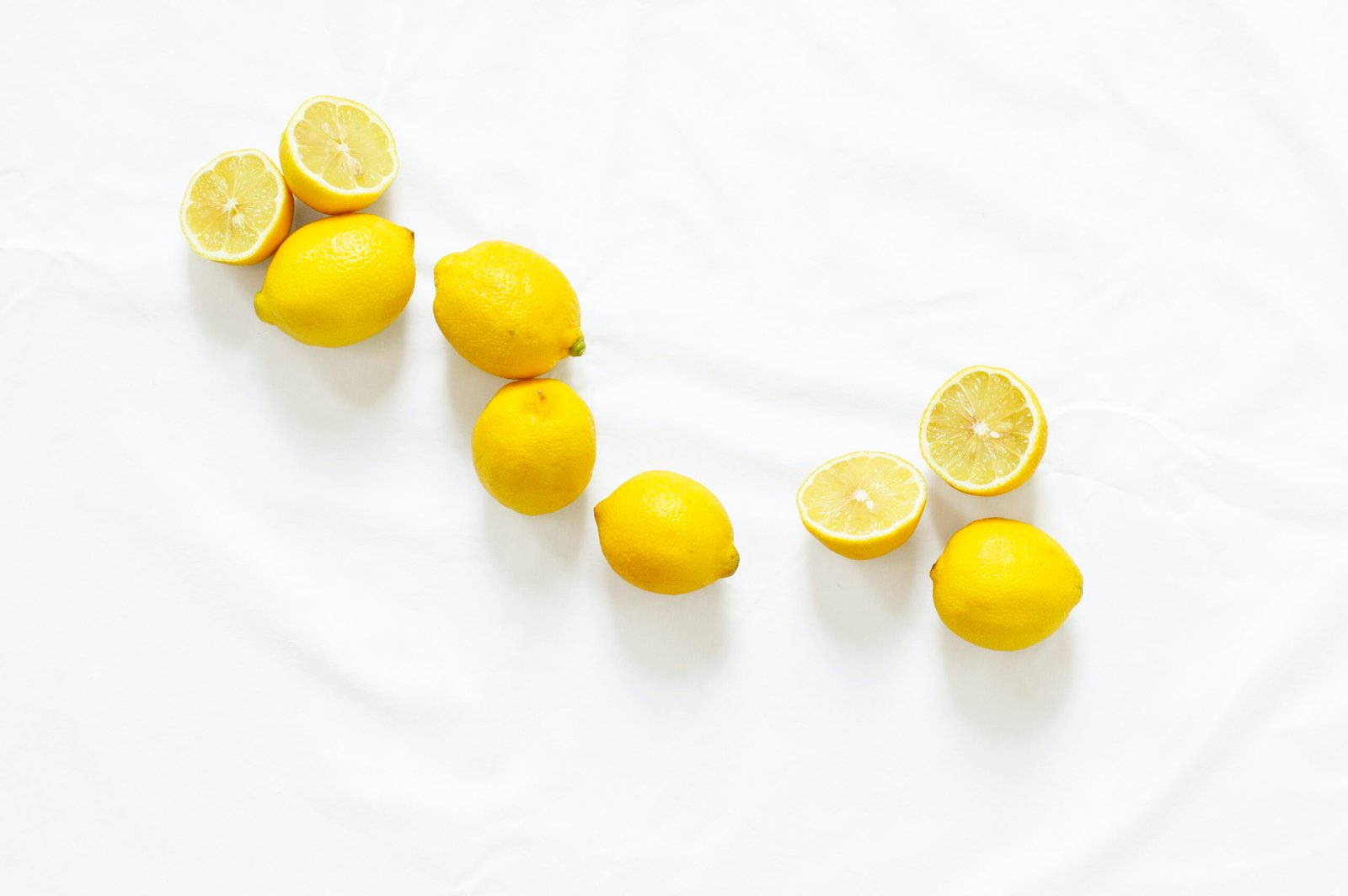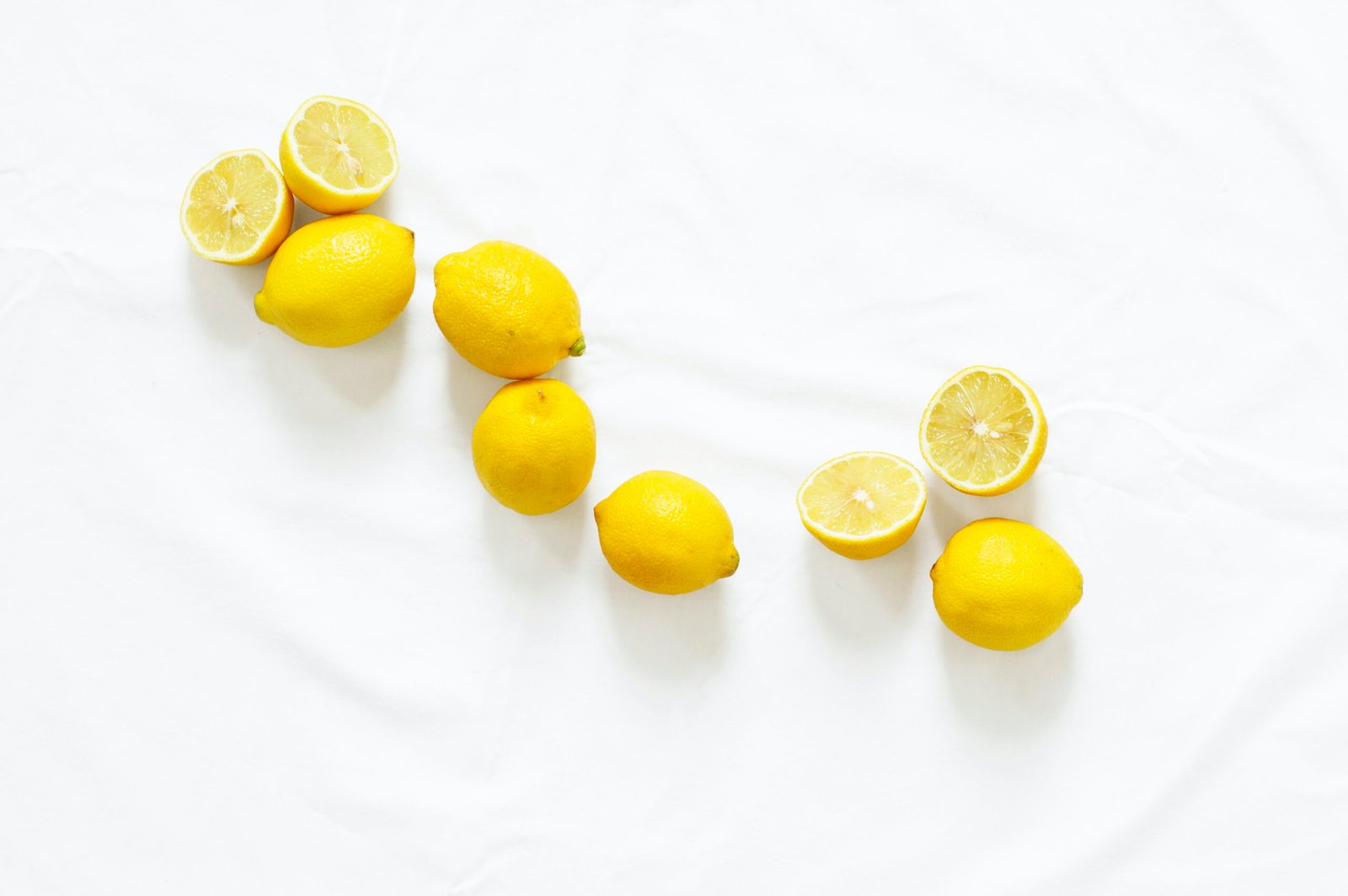Imagine this scenario: you're sitting down with a group of friends enjoying a delicious meal. Suddenly, a sharp, burning pain shoots through your big toe, making you wince in agony. Could it be gout? But wait, you don't even drink alcohol! The idea of gout occurring in non-alcohol drinkers might seem counterintuitive, but surprising as it may be, it's entirely possible. In this article, we'll explore the connection between gout and alcohol consumption, as well as shed light on the lesser-known factors that can contribute to this painful condition. So, grab a cup of tea – don't worry, it won't trigger a gout attack – and let's dig deeper into this often misunderstood condition.

Understanding Gout
Definition of Gout
Gout is a type of arthritis that occurs when uric acid crystals build up in the joints, leading to inflammation and intense pain. It is characterized by sudden and severe attacks of pain, typically in the big toe, but can also affect other joints such as the ankles, knees, wrists, and fingers.
Symptoms of Gout
The symptoms of gout often appear suddenly and include intense pain, swelling, redness, and tenderness in the affected joints. The pain can be excruciating and may last for several hours or even days. Some individuals may also experience fever and a general feeling of illness during an acute gout attack.
Potential Complications of Gout
If left untreated or poorly managed, gout can lead to various complications. These can include the development of tophi, which are hard lumps of uric acid crystals that can form under the skin, as well as joint damage and deformity over time. In severe cases, chronic gout can lead to kidney stones or kidney damage.
Alcohol and Gout Relationship
Why Alcohol is Considered a Risk Factor for Gout
Alcohol is considered a risk factor for gout because it can increase the production of uric acid in the body and impair the kidneys' ability to excrete it. This leads to higher levels of uric acid in the bloodstream, leading to the formation of crystals in the joints. Additionally, alcohol consumption can lead to dehydration, which can further contribute to gout attacks.
Types of Alcoholic Drinks Most Associated with Gout
Certain types of alcoholic beverages are more strongly associated with gout than others. Beer, in particular, has been consistently linked to an increased risk of gout due to its high purine content. Hard liquor, such as whiskey or vodka, is also known to contribute to gout. However, moderate wine consumption has shown to have a less significant association with gout.
Possible Mechanisms of how Alcohol Triggers Gout
There are several mechanisms by which alcohol can trigger gout. Firstly, alcohol is metabolized into a substance called lactate, which inhibits the excretion of uric acid by the kidneys. Secondly, alcohol can stimulate the production of purines, which are compounds that contribute to the formation of uric acid. Finally, alcohol can also lead to dehydration, which increases the concentration of uric acid in the blood.
Incidence of Gout in Non-Alcohol Drinkers
Prevalence of Gout in People Who Do Not Consume Alcohol
While alcohol consumption is a known risk factor for gout, it is important to note that gout can still occur in individuals who do not consume alcohol. In fact, a significant proportion of gout cases are observed in non-alcohol drinkers. This suggests that other factors, such as dietary habits, genetic predisposition, or certain health conditions, may also contribute to the development of gout.
Individual Case Studies
Several case studies have highlighted the occurrence of gout in non-alcohol drinkers. These individuals often exhibit similar symptoms and risk factors as those who consume alcohol. One study found that non-alcohol drinkers with gout tend to have higher body mass indexes (BMIs) and higher levels of serum uric acid, indicating a potential link between obesity and gout in this population.
Scientific Findings Supporting this Incidence
Scientific findings further support the incidence of gout in non-alcohol drinkers. Research has shown that dietary factors, such as the consumption of high-purine foods like organ meats, seafood, and sugary beverages, can contribute to the development of gout. Genetic factors also play a role, as certain individuals may have a genetic predisposition that increases their susceptibility to gout.
Other Risk Factors of Gout
Dietary Habits That May Lead to Gout
In addition to alcohol consumption, certain dietary habits can increase the risk of developing gout. Foods rich in purines, such as seafood, red meat, organ meats (liver, kidney), and high-fructose corn syrup (commonly found in sugary beverages and processed foods), can increase the production of uric acid and contribute to gout attacks. Maintaining a balanced diet and reducing the consumption of these purine-rich foods can help manage gout.
Impact of Obesity on Gout Risks
Obesity is a significant risk factor for gout. Excess body weight can lead to higher levels of uric acid in the blood and increase the risk of gout development. Additionally, obesity is often associated with other comorbidities, such as hypertension and diabetes, which can further contribute to gout risk. Losing weight through a combination of healthy eating and regular exercise is crucial in managing gout in obese individuals.
Influence of Genetic Predisposition
Genetics also play a role in the development of gout. Some individuals have a genetic predisposition that makes them more susceptible to elevated levels of uric acid and the formation of uric acid crystals. Family history of gout can increase the likelihood of developing the condition. Understanding one's genetic predisposition to gout can help guide prevention and management strategies.
Role of Certain Medications and Health Conditions
Certain medications and health conditions can also increase the risk of developing gout. Medications such as diuretics, commonly prescribed for hypertension, can impair the excretion of uric acid and lead to its accumulation. Health conditions such as metabolic syndrome, renal dysfunction, or diabetes can also contribute to gout development. It is important to discuss medication and health history with a healthcare provider to manage and reduce gout risk.

Myths and Misconceptions About Gout
Common Misconceptions About Who Can Develop Gout
One common misconception about gout is that it only affects older individuals or those who consume excessive amounts of alcohol. While gout is more prevalent in older age groups and in individuals who consume alcohol, it can affect anyone, regardless of age or alcohol consumption. Gout is a complex condition influenced by numerous factors, and it is important to dispel these misconceptions to ensure early diagnosis and proper management.
Misperceptions About Alcohol and Gout Connection
Another misconception is that gout is exclusively caused by alcohol consumption. While excessive alcohol intake can significantly increase the risk of gout, it is not the sole cause. Many non-drinkers also develop gout due to other factors such as diet, genetics, and overall health. It is crucial to understand the multifactorial nature of gout to effectively prevent and manage the condition.
Clarification on Myths and Facts
To clarify these myths, it is essential to reiterate that gout can occur in individuals who do not consume alcohol. The development of gout is influenced by various factors, including genetics, dietary habits, obesity, certain medications, and health conditions. Recognizing these facts can help educate the public and healthcare providers about the complexities of gout and promote effective prevention and management strategies.
Prevention for Non-Drinkers
Dietary Adjustments
Non-drinkers can reduce their risk of gout by making certain dietary adjustments. This includes limiting the consumption of purine-rich foods such as organ meats, seafood, and sugary beverages. Instead, opting for a balanced diet that includes plenty of fruits, vegetables, whole grains, and lean proteins can help manage uric acid levels and reduce the likelihood of gout attacks.
Importance of Regular Exercise
Regular exercise is crucial for preventing gout in non-drinkers. Engaging in physical activity helps maintain a healthy weight, improve insulin sensitivity, and reduce the risk of metabolic syndrome – all of which are associated with gout. Incorporating activities such as walking, swimming, or cycling into the daily routine can have a significant impact on gout prevention and overall health.
Maintaining a Healthy Weight
Maintaining a healthy weight is essential in preventing gout. Non-drinkers should focus on weight management through a combination of a balanced diet and regular exercise. Losing excess weight reduces the production of uric acid and decreases strain on the joints, reducing the risk of gout attacks. Consulting a healthcare professional or registered dietitian can provide personalized guidance on achieving and maintaining a healthy weight.
Regular Medical Check-ups
Regular medical check-ups are crucial for non-drinkers to monitor their overall health and detect potential risk factors for gout. Routine blood tests can assess uric acid levels and identify any abnormalities, allowing for early intervention and prevention. Additionally, healthcare professionals can provide guidance on managing other health conditions and offer tailored advice on lifestyle modifications to prevent gout.

Management of Gout for People Who Don't Drink Alcohol
Medications Used in Gout Treatment
For non-drinkers diagnosed with gout, various medications can help manage the condition. These may include nonsteroidal anti-inflammatory drugs (NSAIDs) to relieve pain and reduce inflammation, colchicine to alleviate gout attacks, and xanthine oxidase inhibitors to decrease uric acid production. It is important to consult a healthcare provider to determine the most appropriate medication and dosage for individual cases.
Lifestyle Modifications for Gout Management
In addition to medications, lifestyle modifications are key in managing gout for non-drinkers. This includes maintaining a healthy diet, limiting alcohol intake (if applicable), staying hydrated, engaging in regular exercise, and managing weight. Avoiding trigger foods high in purines and maintaining a consistent exercise routine can help prevent gout flare-ups and improve overall management of the condition.
Natural Remedies and their Efficacy
While there are various natural remedies suggested for gout management, their efficacy varies and should be approached with caution. Some popular remedies include cherry juice, turmeric, ginger, and apple cider vinegar. While these remedies may provide some relief for gout symptoms, they should not replace conventional medical treatment. It is essential to consult with a healthcare professional before using natural remedies alongside prescribed medications.
Research on Gout in Non-Alcohol Drinkers
Current Medical Studies and Findings
Medical research on gout in non-alcohol drinkers is ongoing to better understand the condition and its risk factors. Current studies focus on the role of genetics, dietary factors, and metabolic conditions in gout development. Recent findings have shed light on the complex nature of gout and are contributing to advancements in prevention, diagnosis, and management strategies.
Future Research Directions
Future research directions in gout aim to further elucidate the relationship between non-alcohol-related risk factors and gout development. These include investigating specific dietary components, genetic markers, and mechanisms that contribute to higher uric acid levels in non-drinkers. Additionally, research on the impact of lifestyle interventions and personalized treatments will be crucial in improving outcomes for non-drinkers with gout.
Challenges in understanding Gout in Non-Alcohol Drinkers
Despite progress, there are challenges in understanding gout in non-alcohol drinkers. The multifactorial nature of gout makes it difficult to isolate specific risk factors and determine their relative contributions. Additionally, the heterogeneity within the non-drinking population presents challenges in studying gout in this subgroup. Overcoming these challenges will require interdisciplinary research and collaboration among scientists, healthcare professionals, and individuals affected by gout.
Case Examples of Gout in Non-Alcohol Drinkers
Shared Experiences from Individuals
Many individuals who do not consume alcohol have shared their experiences with gout. These personal accounts reflect the prevalence of gout in non-drinkers and highlight the challenges they face in managing the condition. From dietary adjustments to lifestyle modifications, these individuals provide valuable insights into the impact of gout on their lives and the strategies they employ to manage its symptoms.
Physician Cases and Insight
Physicians also encounter cases of gout in non-alcohol drinkers in their clinical practice. Through their experiences, they offer valuable perspectives on diagnosing, treating, and managing gout in this population. Their expertise contributes to the growing body of knowledge surrounding gout in non-drinkers and helps guide evidence-based approaches to care.
Exploration of Each Case's Unique Factors
Each case of gout in a non-alcohol drinker is unique and influenced by various factors. By exploring these individual cases, researchers can identify patterns, outliers, and potential new risk factors. Understanding the interplay between different factors in gout development is crucial for tailoring prevention and management strategies for non-drinkers.
Gout Awareness and Public Health
Importance of Raising Gout Awareness
Raising awareness about gout is vital to combat misconceptions, promote early detection, and ensure appropriate management. Education about the risk factors, symptoms, and potential complications of gout is essential for both healthcare professionals and the general population. By increasing awareness, it is possible to reduce the burden of gout and improve the overall quality of life for affected individuals.
Public Health Strategies for Gout Prevention
Public health strategies for gout prevention should focus on both lifestyle modifications and policy interventions. These strategies can include health education campaigns, targeted screening programs, and initiatives promoting healthy diets and physical activity. Additionally, healthcare professionals should receive comprehensive training to effectively diagnose, treat, and manage gout in non-drinkers.
Healthcare Policy and Gout Management
Healthcare policies play a crucial role in gout management. Policies should aim to improve access to healthcare, promote preventive care, and support research in gout. Public health agencies and policymakers should collaborate to develop comprehensive strategies that address the multifaceted nature of gout and prioritize patient-centered care.
In conclusion, gout can occur in individuals who do not consume alcohol, highlighting the importance of considering various risk factors such as genetics, dietary habits, and overall health. While alcohol is a known risk factor for gout, it is essential to dispel misconceptions and recognize the multifactorial nature of the condition. Prevention strategies for non-drinkers should focus on dietary adjustments, regular exercise, weight management, and regular medical check-ups. Management of gout in non-drinkers involves a combination of medications, lifestyle modifications, and consultation with healthcare professionals. Ongoing research is necessary to further understand gout in non-alcohol drinkers, and raising awareness about gout and implementing public health strategies are crucial in preventing and managing the condition effectively.
